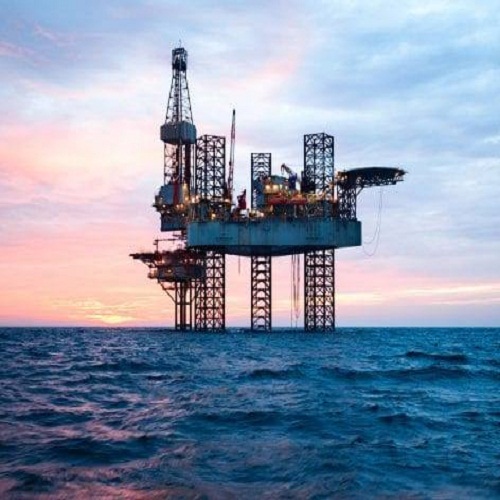Nigeria has recorded a significant 19.3 per cent decline in the level of oil exploration in the first 10 months of this year, a development which may be threatening the Federal Government’s plan to restore growth in crude oil reserves.
Data from the Organisation of Petroleum Exporting Countries, OPEC, indicated that the country’s oil rig count stood at a total of 121 as of October 2020, compared to 150 recorded in the corresponding period of 2019.
Oil rig count measures the level of exploration and production activities in the upstream segment of the industry. As of last year, the Federal Government had said it would ramp up activities in the upstream to ensure a target of 40 billion barrels reserves are met by 2025.
Expressing the mind of the Federal Government, the director, Department of Petroleum Resources, DPR, Sarki Auwalu, had on October 10, 2020, stated: “Nigeria’s target of 40 billion barrels oil/condensate reserves by 2025 is a realistic and achievable target. The policies and programs being implemented by the federal government, including the ongoing bid rounds for marginal oil fields, reforms in the oil and gas sector are geared toward realizing these aspirations.”
Comparison
However, amongst the top five oil producing countries in Africa, only two recorded increases in the level of activities this year, as three countries recorded a decline.
The highest African producer, Algeria, recorded a 30.8 per cent drop in its rig count at 317 as against 458 deployed in the corresponding period of last year.
Similarly, Gabon came down by a whopping 52.9 percent at 32 rig count as against 68 in 2019, while Angola declined by 44.4 percent to 30, from 54 recorded in the corresponding period of 2019.
However, war-torn Libya increased its rig count significantly by 25.8 percent to 117 compared to 93 it recorded in the corresponding period of 2019.
Also, Equatorial Guinea recorded a 40 percent rise in rig count to 14 in 2020 against 10 in 2019.
Causes
Though OPEC data did not indicate the causes of the declines, findings Energy Vanguard, indicated that the dwindling exploration was fuelled by the Coronavirus pandemic and the consequent low oil prices in 2020. These, in turn, forced a significant cut in the capital budgets of the International Oil Companies, IOCs, and their indigenous counterparts.
However, in Nigeria, an additional problem, according to industry experts, was the inability of the country to enact the long-standing Petroleum Industry Bill, PIB, into law in order to attract more investors into the industry.
Implications
The major implication is that Nigeria’s oil reserves might not increase soon. In fact, industry experts are saying the reserves would even drop further because of the slow pace of activities in the industry.
According to the DPR report, the reserves had previously dropped by 82 million barrels from 36.97 billion barrels in 2019 to 36.89 billion barrels. This further implies that the nation’s crude oil reserves could be depleted much faster than expected if much funds are not invested in capital projects, especially exploration.
Experts view
Commenting on the development, Lukman Otunuga, Senior Research Analyst at FXTM, stated: “Africa’s largest economy continues to nurse wounds inflicted by COVID-19, while the Central Bank of Nigeria, CBN, has cut interest rates to stimulate economic growth.
“With inflation rising to the highest level in 29 months amid the coronavirus crises, Nigeria needs all the support it can get to ride through the current storm.”
Similarly, Lead promoter, Energyhub Nigeria, Dr Felix Amieyeofori, said: “Investment in the Nigerian upstream the sector has been in limbo even before the COVID-19, mainly due to the uncertainties associated with the non-passage of the PIB and higher cost of operation due to militancy in the Niger Delta and other issues.
“This is even more as most Final Investment Decisions, FIDs, have been on hold to ensure the direction of the industry. With the impact of COVID-19 on the industry, there is an additional caution in Capital expenditure, CAPEX.
“According to World Oil Report in July 2020, we should expect CAPEX to decline 22%, with all international regions contracting by double digits.
“Of this global average, Africa is expected to decline by as high as 43%, followed by Russia/FSU/Eastern Europe and Western Europe tied for second place with near-30% contractions in spending.
“Capex is also expected to fall significantly in Latin America, down 24%, while only Asia and the Middle East are expected to see modest CAPEX cuts. This of course will significantly affect CAPEX in the industry until there is a clear sigh of relief from the COVID-19.
“This notwithstanding, in dollar terms, terms, the industry would require between $10-20 billion annually to shore up its reserves and production capacity to near the 3 million bopd, and all of these investments will depend on the regulatory and fiscal environment. There are major factors that are posing an existential threat.
“First, the delays in the passage of the PIB, has not attracted the investment confidence, thus affecting the inflow of Direct Foreign Investment, FDI, into the sector.
“Second, there is still a security challenge in the Niger Delta, which has translated to the high cost of operations, vandalism/repairs, and environmental remediation.
“This has also caused a high loss of crude through theft. Third, the COVID19 Pandemic has also culminated in a gross reduction in operations.”
Measures
He said: “The Nigerian government must realize that the delay of the nation’s PIB is killing the industry and hold the bull by the horn now to pass it. It can always be amended, but there must be a document to guide the industry.
“The militancy and security risk is a social problem and the government must own up to its responsibility by tackling this head-on. The COVID-19 is a global disruption, but as of now, the global oil and gas industry is moving speedily to digitize the industry in order to remotely operate the assets through some means, including Robotics.
“This is the way forward and Nigeria cannot shy away from this reality if it must sustain its oil and gas business. It has to also go digital and operate most of the facilities remotely. Disruption is severe as most of the truck lines are still recording between 10-30% crude thefts, in addition to frequent pipeline outages.
“Nigeria Extractive Industries Transparency Initiative, NEITI report in 2019 indicated that the country lost about $42 billion between 2009 and 2018 due to pipeline vandalism and crude theft.
“This translates to an annual loss of $4.2billion, and this is huge for a struggling industry as ours.”
He added: “The Government must expedite the passage of the PIB to at the least provide a landing point for the investors, and also frontally confront the Niger Delta security menace through aggressive social investment.
“It must also partner with the technology group to fast track digitization of the industry as that will be the new normal for now.”
Source: Vanguard










